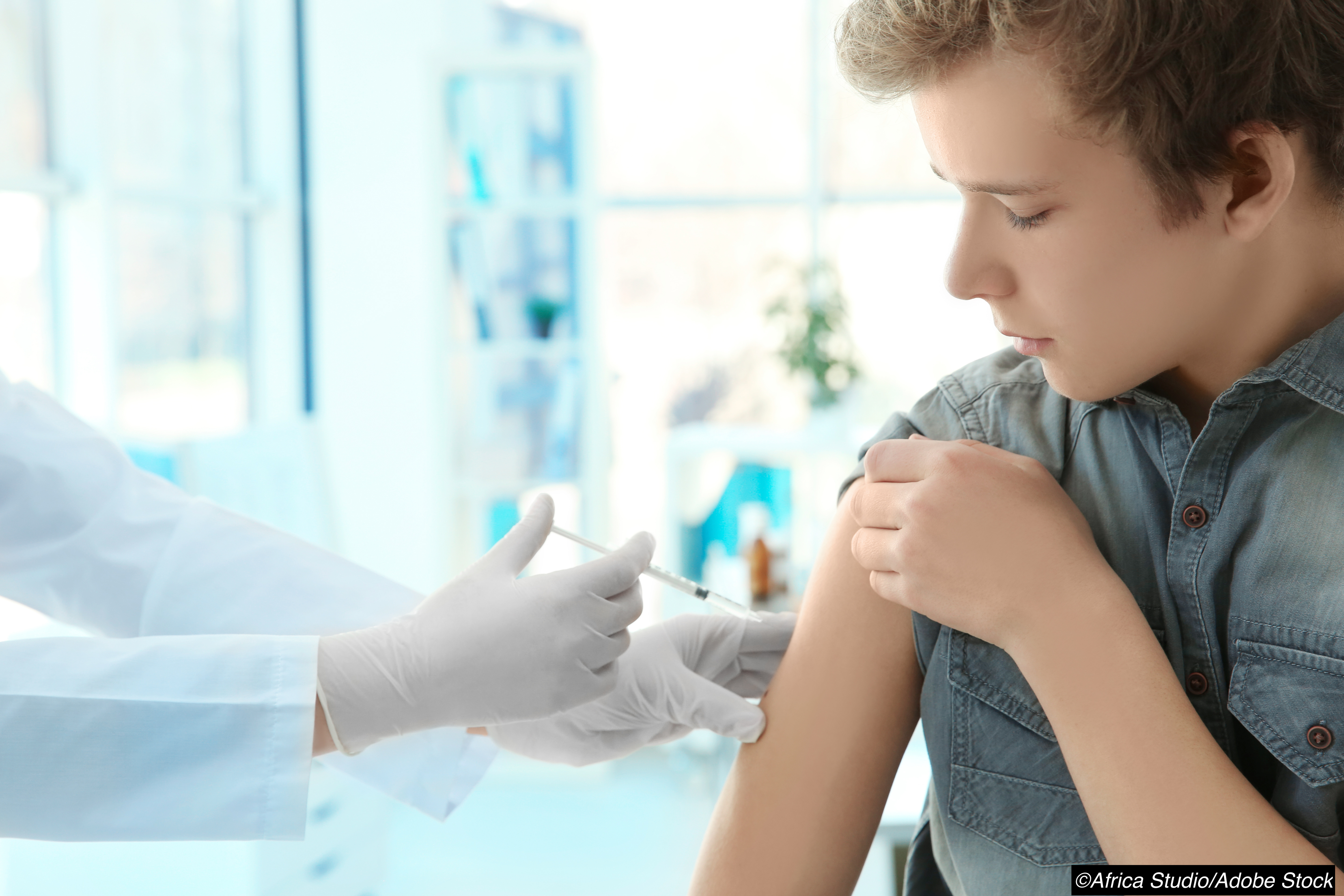
The FDA kicked of the new year with three major changes to expand the emergency use authorization (EUA) for booster doses of the Pfizer-BioNTech Covid-19 vaccine, BNT162b2.
On Jan. 3, the agency announced that the EUA has been amended to allow the use of a single booster dose of BNT162b2 in adolescents ages 12-15 years; shorten the minimum time between the completion of a primary vaccination series and a booster dose from six months to at least five months; and allow the use of a third primary series dose for kids ages 5-11 years who are immunocompromised.
“Based on the FDA’s assessment of currently available data, a booster dose of the currently authorized vaccines may help provide better protection against both the Delta and Omicron variants. In particular, the Omicron variant appears to be slightly more resistant to the antibody levels produced in response to the primary series doses from the current vaccines,” said Peter Marks, MD, PhD, director of the FDA’s Center for Biologics Evaluation and Research, in a statement. “With this in mind, the FDA has extended the range of individuals eligible to receive a booster, shortened the length of time between the completion of the Pfizer primary series for individuals to receive a booster and is authorizing a third protective vaccine dose for some of our youngest and most vulnerable individuals.”
The FDA’s decision to expand booster availability to teens was based on a review of real-world data from Israel, “including safety data from more than 6,300 individuals 12 through 15 years of age who received a booster dose of the vaccine at least 5 months following completion of the primary two-dose vaccination series,” the agency explained.
Based on that review, the FDA determined that the benefits of a single-dose BNT162b2 booster outweigh the potential risks in patients ages 12-15. No new safety signals were identified, and there were also no new cases of myocarditis or pericarditis among participants in this age group, the agency added.
As for the decision to shorten the time between primary vaccination and booster eligibility, the FDA cited further data from over 4.1 million individuals in Israel who were given a booster at least five months after their first shots. According to the FDA, peer-reviewed data from a number of laboratories confirmed the ability of a BNT162b2 booster to improve antibody responses, with no new safety concerns.
What’s more, the new data from Israel seems to confirm earlier findings suggesting that a booster dose of mRNA vaccine is protective against the highly contagious Omicron variant, the highly mutated Covid strain that precipitated the current tidal wave of Covid cases in the U.S.
“Authorizing booster vaccination to take place at five months rather than six months may therefore provide better protection sooner for individuals against the highly transmissible Omicron variant,” the FDA wrote. “Given the demonstrated safety and effectiveness of a booster dose when administered five months after the primary vaccination series, and the fact that a booster dose may help provide better protection against the rapidly spreading Omicron variant, the FDA has determined that the known and potential benefits of administering a booster to individuals ages 12 and older at least five months following completion of the primary vaccination series, outweighs the known and potential risks.”
The FDA’s EUA amendments fall in line with the current U.S. strategy for fighting the Omicron variant, which largely relies on increased access to boosters and primary vaccinations, along with increased at-home testing. “Boosters are critical in getting our approach to Omicron to be optimal,” Anthony Fauci, MD, NIAID director and chief medical advisor to President Biden, said in a press briefing by the White House Covid-19 Response Team on Dec. 29.
However, while booster vaccines may help to make some headway in the fight against Omicron, that added protection may only offer a temporary reprieve—new data from Britain released in late December 2021 suggests that while mRNA boosters using the BNT162b2 shot or Moderna’s mRNA-1273 increase protection against symptomatic Omicron infection, booster efficacy seems to nosedive at the 10-week mark.
In its own attempt to blunt the blow of Omicron, Israel announced that it will offer a fourth shot of Covid vaccine to individuals 60 years of age and older. The move—which, Israel acknowledged, is not based on new scientific data about the Omicron variant—dramatically expanding the scope of the Israeli “double-booster” program that kicked off last week. The program initially only offered the extra shots to health care workers and older patients who were immunocompromised.
The FDA’s latest amendments to the BNT162b2 booster EUA also move to protect at-risk individuals, widening its previous authorization allowing for a third primary BNT162b2 dose in immunocompromised patients ages 12 and older to include patients as young as 5 years old.
“The agency used prior analyses conducted as part of the authorization process for healthy children to inform safety in this population and determined that the potential benefits of the administration of a third primary series dose at least 28 days following the second dose of the two-dose regimen, outweighed the potential and known risks of the vaccine. To date, the FDA and CDC have seen no new safety signals in this age group.”
The FDA reiterated that the most common side effects seen in patients receiving BNT162b2 vaccine boosters include pain, redness, and swelling at the injection site, fatigue, headache, muscle/joint pain, and chills. “Of note, swollen lymph nodes in the underarm were observed more frequently following the booster dose than after the second dose of a two-dose primary series,” the agency added.
John McKenna, Associate Editor, BreakingMED™
Cat ID: 31
Topic ID: 79,31,730,933,31,926,138,44,192,561,927,151,725,928,925,934


